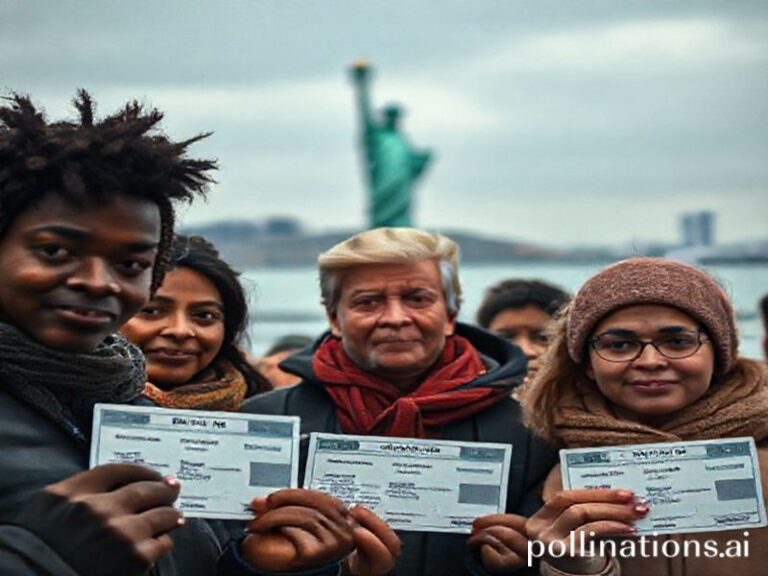High Potential Season 2: How the World’s New Favorite Genius Cleans Up Crime—and Our Collective Guilt
High Potential, Season 2: A Globally Viral IQ Test That Most of Us Are Still Failing
By “International” Correspondent Who Has Read Too Many Subtitles
The planet’s streaming algorithms quietly agreed on one thing last week: Season 2 of *High Potential*—the U.S. remake of the French *HPI*—should be force-fed to 190 countries faster than a TikTok trend involving raw chicken. Disney+ rolled it out with the same cheerful determinism a Bond villain uses when pressing the red button, and the result is a fascinating transnational psychology experiment. We are all, apparently, desperate to watch a cleaning lady out-think Interpol, Europol, and whatever half-awake security guard is left at the Louvre gift shop.
From Reykjavík to Reykjavík-adjacent (population: the rest of the world), audiences are asking the same two questions: 1) Why does every fictional genius have the same haircut as a 1980s tax accountant? and 2) When did the global attention span shrink to the length of an average French cop’s cigarette break? The answer, of course, lies in the episodes themselves, which serve as bite-sized parables about late-stage capitalism, institutional incompetence, and the universal human fantasy that raw intellect can still beat a system rigged by people with better dental plans.
Episode 1, “The Calculus of Chaos,” kicks off in Paris, that perennial city of light, strikes, and existential dread. The writing team, a multinational Zoom grid of sleep-deprived caffeine addicts, wastes no time reminding viewers that Europe’s finest minds can’t solve a homicide without consulting a single mother who once found a typo in Gödel’s *Incompleteness Theorem*. The episode’s global resonance is immediate: in Manila, viewers nod knowingly at the overstretched police budget; in São Paulo, they laugh at the idea of any budget at all.
By Episode 3, “The Stockholm Syndrome of Smarts,” the show has galloped into Scandinavia, because if you’re going to fetishize efficiency, you might as well do it where the furniture is flat-packed. Here, a Nobel-winning economist is murdered with—you guessed it—an award citation rolled tight enough to perforate the carotid. The Swedish detectives look like they’ve stepped off a minimalist Pinterest board, all beige coats and quiet desperation. Our heroine Morgan, armed with an IQ of 160 and the fashion sense of someone who lost a dare, cracks the case while simultaneously teaching the Swedes that sometimes feelings matter more than fiscal policy. Twitter melts down in seventeen languages, mostly arguing about whether the citation was double-spaced.
Episode 5, “The Singapore Sling Theorem,” is where the writers truly let their passports expire. The plot detours to a gleaming city-state that has weaponized meritocracy into a contact sport. A murdered quant’s algorithm could crash the Asian markets by teatime, but only if Morgan can out-math a supercomputer cooled by the tears of overachieving teenagers. The episode is a love letter to anyone who has ever filled out a visa form in triplicate, only to be told the queue is now digital. Viewers in Lagos recognize the bureaucratic slapstick; viewers in Zurich recognize the décor.
The season finale, “The Davos Equation,” is set at a luxury alpine resort so exclusive even the snow has a net worth. Billionaires gather to pitch “ethical AI” while their bodyguards quietly tase anyone holding a union pamphlet. Morgan unravels the murder, naturally, but the real twist is existential: intelligence, it turns out, is just another commodity to be leveraged by wealth. The last shot lingers on a snow-covered helipad—empty, save for a single cleaning cart. It’s either a metaphor for the vanishing middle class or a sly nod to the crew’s overtime dispute; the subtitles don’t specify.
And so, *High Potential* becomes the first truly global comfort blanket of the decade: reassuring us that genius can still be working-class, even if the catering budget alone could refinance Greece. It’s a fairy tale for the age of widening inequality, sprinkled with the dandruff of late-night writers’ rooms. Watch it, laugh, cry, then go back to your unpaid internship at the United Nations. At least you’ll know how to solve a locked-room mystery using only a baguette and a misplaced sense of superiority.







